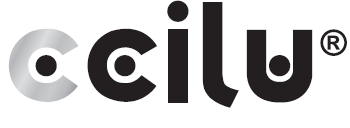

Ccilu International Inc.

Taipei, Taiwan
November 2022
Apparel
Wholesale/Retail
Austria,
Bahrain,
Bangladesh,
Canada,
China,
Egypt,
India,
Indonesia,
Iran,
Iraq,
Israel,
Japan,
Jordan,
Kuwait,
Lebanon,
Malaysia,
Mexico,
New Zealand,
Norway,
Oman,
Philippines,
Qatar,
Saudi Arabia,
Singapore,
South Africa,
South Korea,
Swaziland,
Syria,
Taiwan,
Thailand,
Turkey,
United Kingdom,
United States,
Vietnam
Ccilu International Inc., Ccilu Japan Co., Ltd, Ccilu USA Inc. and Ccilu China Inc. is a global footwear group of companies that specializes in lightweight, flexible, comfortable, and sustainable footwear and apparel products. The group has expanded its presence in over forty countries in the last ten years. Ccilu has a wide range of advance and unique clean technologies including upcycling coffee grounds, upcycling ocean plastics, upcycling silicon slurries, upcycling agricultural/aquacultural wastes, 100% recyclable/reusable footwear, and pyrolysis tech. Ccilu aims at introducing the world’s first net-zero footwear in 2023 and driving the whole company operation to be net-zero by 2025. Ccilu has won 25+ global design titles and social innovation awards. With the upcycling program, Ccilu includes the underprivileged scrap collectors, farmers, and fishers to be its major suppliers. Ccilu gives away the renewal energy generated from the pyrolysis tech upcycling the wasted footwear and apparel, as well as give back a significant portion of its revenue to the local communities and incubate several NGO partners. Ccilu is leading and changing the landscape of the industry.
Overall B Impact Score
Governance 8.8
Governance evaluates a company's overall mission, engagement around its social/environmental impact, ethics, and transparency. This section also evaluates the ability of a company to protect their mission and formally consider stakeholders in decision making through their corporate structure (e.g. benefit corporation) or corporate governing documents.
What is this? A company with an Impact Business Model is intentionally designed to create a specific positive outcome for one of its stakeholders - such as workers, community, environment, or customers.
Workers 19.9
Workers evaluates a company’s contributions to its employees’ financial security, health & safety, wellness, career development, and engagement & satisfaction. In addition, this section recognizes business models designed to benefit workers, such as companies that are at least 40% owned by non-executive employees and those that have workforce development programs to support individuals with barriers to employment.
Community 24.3
Community evaluates a company’s engagement with and impact on the communities in which it operates, hires from, and sources from. Topics include diversity, equity & inclusion, economic impact, civic engagement, charitable giving, and supply chain management. In addition, this section recognizes business models that are designed to address specific community-oriented problems, such as poverty alleviation through fair trade sourcing or distribution via microenterprises, producer cooperative models, locally focused economic development, and formal charitable giving commitments.
What is this? A company with an Impact Business Model is intentionally designed to create a specific positive outcome for one of its stakeholders - such as workers, community, environment, or customers.
Environment 27.5
Environment evaluates a company’s overall environmental management practices as well as its impact on the air, climate, water, land, and biodiversity. This includes the direct impact of a company’s operations and, when applicable its supply chain and distribution channels. This section also recognizes companies with environmentally innovative production processes and those that sell products or services that have a positive environmental impact. Some examples might include products and services that create renewable energy, reduce consumption or waste, conserve land or wildlife, provide less toxic alternatives to the market, or educate people about environmental problems.
What is this? A company with an Impact Business Model is intentionally designed to create a specific positive outcome for one of its stakeholders - such as workers, community, environment, or customers.
Customers 3.9
Customers evaluates a company’s stewardship of its customers through the quality of its products and services, ethical marketing, data privacy and security, and feedback channels. In addition, this section recognizes products or services that are designed to address a particular social problem for or through its customers, such as health or educational products, arts & media products, serving underserved customers/clients, and services that improve the social impact of other businesses or organizations.